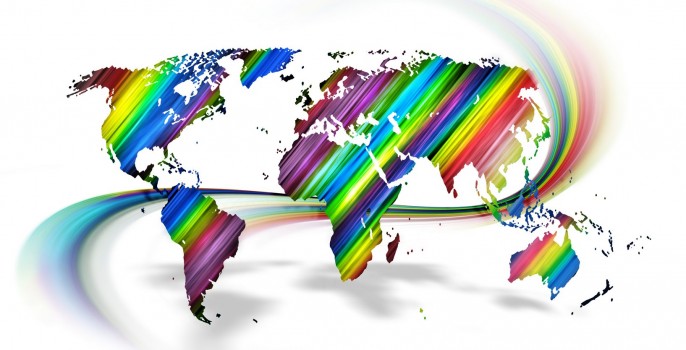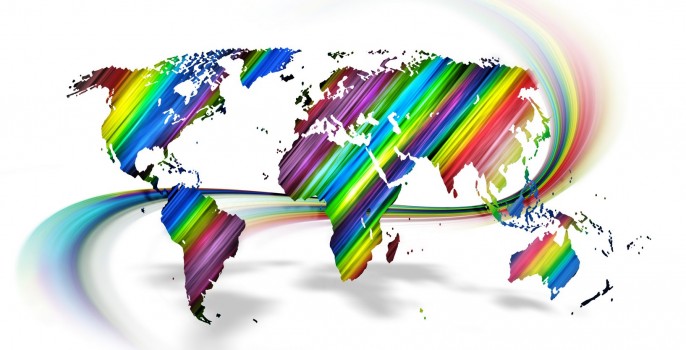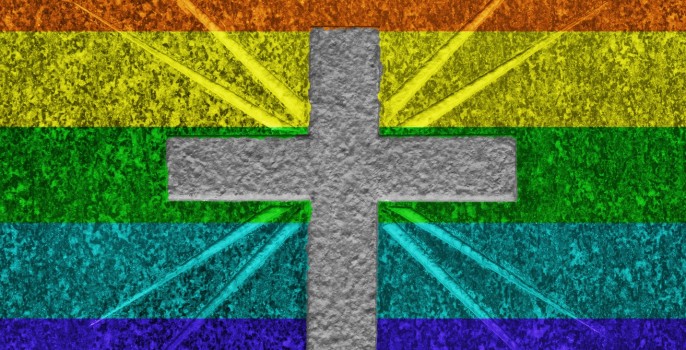In Zagreb, Domino Association/Queer Zagreb hosted a two day International LGBT Media Conference, on May 16-17. The conference drew together a wide range of LGBTIQ groups, individuals and media professionals from across the Balkans and beyond, with a focus on encouraging knowledge exchange, creating space for debate, and fostering ethical and responsible media coverage of LGBTIQ issues.Numerous panels and workshops were held, directed to different audiences.
Below is the Conference summary of themes, workshops and panels we received from organisers before the event
Conference focal points – LGBT topics and media: ethical specifics and responsibilities
International conference on ethical specifics and responsibilities of the LGBT media and journalists will take place in Zagreb, Croatia during IDAHO dates. The conference will connect individuals, redactions and organizations who deal with reporting on LGBT issues in order to exchange experiences, debate specifics LGBT topics in the media and detect positive practice guidance for further collaboration between LGBT media worldwide. The conference will also focus on specific local context and reporting on these issues arising from the state of media and human right standards in each country participating at the conference.
The conference will include a panel of international appearances to be discussed on reporting on LGBT issues inside and outside the LGBT media, comparing these two approaches, and to consider ethical specifics related to the topic, as well as the added responsibility that can be recovered from the need for educating the LGBT community on the one hand, and informing the general public on the other. Besides theoretical inputs, within the conference workshops with young LGBT journalists will be organized.
LGBT groups from Croatia as the host country of this conference are closely associated with the LGBT movement in the former Yugoslavia, which is marked by different levels of human/LGBT rights in different countries in the region. At the same time, given the correlation of the organisers (Domino Association, which is already more than a decade internationally engaged in the promotion, protection and supporting of LGBT culture and identity) with networks of LGBT organizations across the region and Europe, the conference will include organizations and individuals engaged in media activities from a number of countries of the Caucasus and the Balkans to the major media organizations in Europe and North America. The participants of the conference will also be the members of non-LGBT media in Croatia as well as non-media LGBT organisations from the country.
Some of the issues to be addressed at the conference are the direct result from three years of experience managing the largest regional LGBT portal Queer.hr along with the decade of experience of the Domino association in advocating of LGBT culture, public policy and education, independent and in collaboration with other organizations in the Balkans.
Time table
The conference will be held for a period of two days, with 3/2 panels on each day and workshops for journalists. The introductory panel is aimed at the LGBT topics and reporting in general, the next two are more closely associated with the LGBT media. Workshops are conducted in the second part of the day. Panels last for an hour, which of half time for questions, and a half-hour break. The workshop lasts an hour and a half.
Topics and panels
First day: LGBT topics
1. How to approach to LGBT issues through the media. Responsibility towards LGBT community and towards the public- what are the differences and similarities? Journalistic activism: reporting on LGBT issues inside and outside the LGBT media includes elements of activism and brings responsibility of appropriate approach to the subject. (empowering/ educational approach towards LGBT readership versus informative / educational approach towards non LGBT readership) + comparison issues: LGBT / non-LGBT media.
2. Ethical specifics and dilemmas on reporting on LGBT issues Examples of problem areas: graphic representations of violence, the ethical question of outing, victimization of LGBT community, reporting on the activities of LGBT organizations, the threat of exploitation of examples from life).
3. LGBT topics There is always a political momentum in LGBT topics – regardless even, if the main focus of the topic is sometimes of a non-political nature. Likewise, LGBT lifestyles are difficult to separate from the LGBT culture because it is a culture of identities. Issues arising from these reflect on LGBT media editing, and segmentation of its contents to strictly cultural, political or lifestyle content.
4. Workshop for journalists: (Workshop for LGBT journalists) Basic editing and elaboration of the topic, preparing of materials.
Second day: Media as a platform
1. Cooperation and relations between the LGBT media to other media LGBT media as a platform for non LGBT Media: responsibility towards using of ‘politically correct’ (as well as ’community preferred’) concepts, discourses, approaches, and also building of networks of the LGBT media (with the question of co-existence of different political / editorial approach)
2. Involvement and activation of the LGBT community Social networks and forums, direct communication with the readership (comments and invitations to participate) – responsibility towards the activation of the level of interest in the relevant topics, and also the issue of affirmative action – including all the letters of the LGBT spectrum according to their needs.
3. WORKSHOP FOR JOURNALISTS: LGBT issues in the media: issues of terminology (politically correct and / or preferred terms), life stories vs. exploitation, compliance of content for LGBT and general audience.
For further information see the Domino Association site or the Queer Zagreb site or, for specific English-language information including attendance details, get in contact direct with Karla/the Queer Zagreb team via horvat.crnogaj@gmail.com



